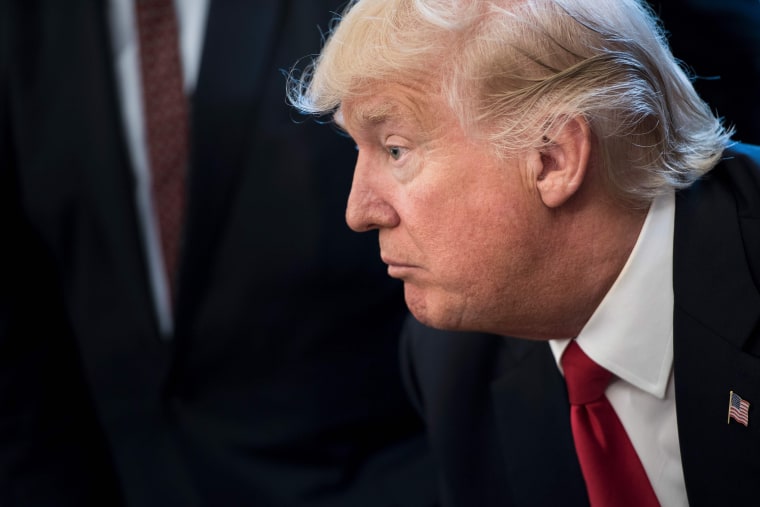As the Donald Trump's Russia scandal has gradually evolved, the president and his team have made valiant efforts to move the goal posts in a more favorable direction.
Trump World's initial posture was that Russia did not attack our elections in the hopes of helping elect the Republican ticket. Once it became obvious that this posture was wrong, Trump World changed course, conceding that Russia may have attacked, but the Trump campaign had no communications with the Putin-backed attackers during their espionage operation.
When this was also discredited, Trump World effectively declared, "OK, Russians may have taken steps to help us, and we may have been in contact with them during the attack, but we definitely didn't collude with them."
This would be a more compelling talking point were it not for all the collusion that's now been documented. The Washington Post's Dana Milbank summarized this nicely:
Technically, President Trump's standard line of defense in the Russia probe -- we did not collude -- suffered a bit of a blow Monday. In a plea deal with the special counsel unsealed Monday (at about the time Trump was tweeting the phrase "there is NO COLLUSION!"), Trump campaign adviser George Papadopoulos admitted the Trump adviser had contacts with Russians offering the Trump campaign Hillary Clinton's emails and other "dirt," and he tried to arrange meetings with Russian officials.That's pretty much the dictionary definition of "collusion."
It certainly looks that way, doesn't it? Indeed, as NBC News noted this morning, we now have two known instances in which Russians, having stolen Democratic documents, offered Trump World damaging information on Hillary Clinton, and in both instances, officials from Trump's campaign sought the damaging materials. The first was the Trump Tower meeting in June 2016, and the second was the evidence that emerged yesterday in George Papadopoulos' guilty plea.
In other words, Team Trump (1) knew a foreign adversary had targeted the U.S. election; (2) welcomed the adversary's intervention in our democracy; and (3) then lied more than once about the interactions between the campaign and Russia.
It's against this backdrop that Donald Trump has said five times since Friday, including once this morning, that there was "no collusion" between his campaign and Russia.
Which necessarily means that Trump is either struggling to understand the basics of current events or he defines "collusion" in a rather unique way.
